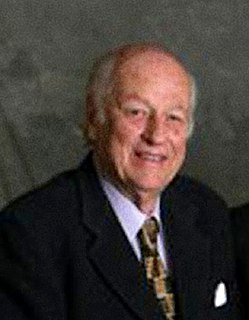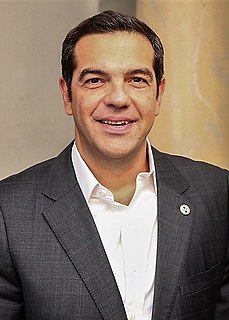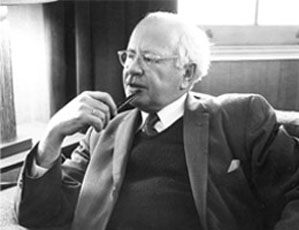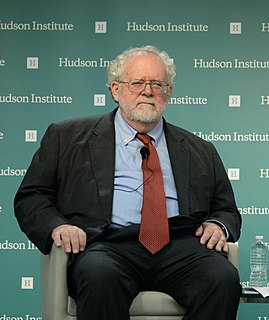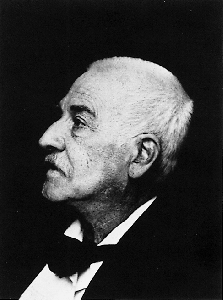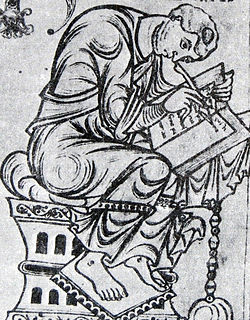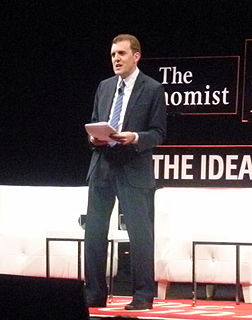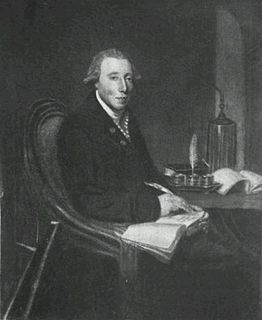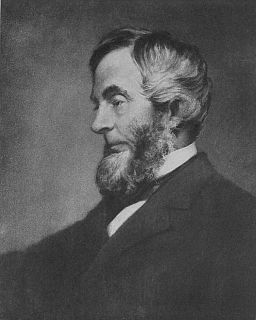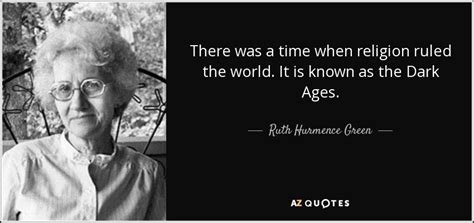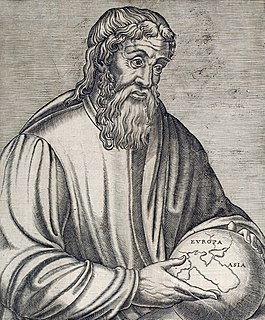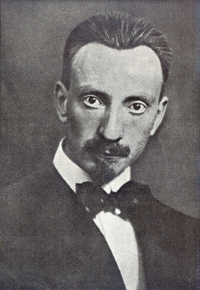Top 1200 Greece And Rome Quotes & Sayings - Page 19
Explore popular Greece And Rome quotes.
Last updated on December 23, 2024.
Animation had been used only for things like King Kong and the destruction of cities, which was very popular in the 1950s. I got tired of destroying cities. I destroyed New York, I destroyed San Francisco's Golden Gate Bridge, Rome, and Washington. I was looking for a new outlet, and I came across the Sinbad legends.
The most interesting thing which I heard of, in this township of Hull, was an unfailing spring, whose locality was pointed out tome on the side of a distant hill, as I was panting along the shore, though I did not visit it. Perhaps, if I should go through Rome, it would be some spring on the Capitoline Hill I should remember the longest.
I play Father Francis in 'The Exorcist Prequel.' It's fantastic. We are shooting in Morrocco and Rome. Paul Schrader is directing; Stellan Skarsgard plays the younger Max Von Sydow character. It's just a fantastic script. It's a very eerie, very scary script. It encomposes a growing dread that I think is really appropriate for the film.
Large eyes were admired in Greece, where they still prevail. They are the finest of all when they have the internal look, which is not common. The stag or antelope eye of the Orientals is beautiful and lamping, but is accused of looking skittish and indifferent. "The epithet of 'stag-eyed,'" says Lady Wortley Montgu, speaking of a Turkish love-song, "pleases me extremely; and I think it a very lively image of the fire and indifference in his mistress' eye.
To my taste, the men in Rome are ridiculously, hurtfully, stupidly beautiful. More beautiful even than Roman women, to be honest. Italian men are beautiful in the same way as French women, which is to say-- no detail spared in the quest for perfection. They’re like show poodles. Sometimes they look so good I want to applaud.
We are proceeding on the basis of common values. We have more to gain from partnership, from promoting our partnership in dealing with the big global challenges. I, therefore, believe that in the near future, not much is going to change in the relations between E.U., Greece and the United States of America. These are relations that were forged under very difficult conditions and rely on the common values of our people.
The younger generation forms a country of its own. It has no geographical boundaries. I've talked with young Hungarians in Budapest, with young Italians in Rome, with young Frenchmen in Paris, and with young people all over. ... These young people are going to do things. They are going to change things.
The decline of Rome was the natural and inevitable effect of immoderate greatness. Prosperity ripened the principle of decay; the cause of the destruction multiplied with the extent of conquest; and, as soon as time or accident and removed the artificial supports, the stupendous fabric yielded to the pressure of its own weight. The story of the ruin is simple and obvious: and instead of inquiring why the Roman Empire was destroyed we should rather be surprised that it has subsisted for so long.
Inclined to peace by his temper and situation, it was easy for [Augustus] to discover that Rome, in her present exalted situation, had much less to hope than to fear from the chance of arms; and that, in the prosecution of remote wars, the undertaking became every day more difficult, the event more doubtful, and the possession more precarious and less beneficial.
In my Pantheon, Pan still reigns in his pristine glory, with his ruddy face, his flowing beard, and his shaggy body, his pipe and his crook, his nymph Echo, and his chosen daughter Iambe; for the great god Pan is not dead, as was rumored. No god ever dies. Perhaps of all the gods of New England and of ancient Greece, I am most constant at his shrine.
The greater part of our best years has been passed for our generation in these two great worldconvulsions. All will be changed after this war, which spends in one month more than nations earned before in yearsthere is no more security in our time than in those of the Reformation or the fall of Rome.
I saw also the relationship between the two popes I saw how baleful (evil; harmful) would be the consequences of this false church. I saw it increase in size; heretics of every kind came into the city (of Rome) Once more I saw the Church of Peter was undermined by a plan evolved by the secret sect (Masonry), while storms were damaging it.
In the infancy of civilization, when our island was as savage as New Guinea, when letters and arts were still unknown to Athens, when scarcely a thatched roofed hut stood on what was later the site of Rome, this contemned people had their fenced cities and cedar palaces, their splendid Temple, their fleets of merchant ships, their schools of sacred learning, their great statesmen and soldiers, their natural philosophers, their historians and their poets.
Adolf Hitler is probably the last of the great adventurer-conquerors in the tradition of Alexander, Caesar and Napoleon, and the Third Reich the last of the empires which set out on the path taken earlier by France, Rome and Macedonia. The curtain was rung down on that phase of history, at least, by the sudden invention of the hydrogen bomb, of the ballistic missile and of rockets that can be aimed to hit the moon.
When Edward Gibbon was writing about the fall of the Roman Empire in the late 18th century, he could argue that transportation hadn't changed since ancient times. An imperial messenger on the Roman roads could get from Rome to London even faster in A.D. 100 than in 1750. But by 1850, and even more obviously today, all of that has changed.
The technologies which have had the most profound effects on human life are usually simple. A good example of a simple technology with profound historical consequences is hay. ... It was hay that allowed populations to grow and civilizations to flourish among the forests of Northern Europe. Hay moved the greatness of Rome to Paris and London, and later to Berlin and Moscow and New York.
The whole life of Demosthenes... leaves the impression of a melancholy state of things, and of the brazen insolence of wickedness. A particularly striking idea of how things really were in Greece can be obtained from one feature of life - the sons who turned out badly.... the sons of gifted but arrogant fathers turned out merely arrogant, the grandsons hopeless; it is respect alone that sustains families and gives them traditions.
Dialectic, which is the parent of logic, came itself from rhetoric. Rhetoric is in turn the child of the myths and poetry of ancient Greece. That is so historically, and that is so by any application of common sense. The poetry and myths are the response of a prehistoric people to the Universe around them made on the basis of Quality. It is Quality, not dialectic, which is the generator of everything we know.
The fall of Rome is often regarded as an object lesson in the wages of sin. Its contemporaries, however, more frequently laid the blame on the rise of Christianity. . . . Although they do not inquire into the future, and either forget or do not know the past, yet defame present times as most unusually beset, as it were, by evils because there is belief in Christ and worship of God, and increasingly less worship of idols.
Nietzsche inveighs against every sort of historical optimism; but he energetically repudiates the ordinary pessimism, which is the result of degenerate or enfeebled instincts of decadence. He preaches with youthful enthusiasm the triumph of a tragic culture, introduced by an intrepid rising generation, in which the spirit of ancient Greece might be born again. He rejects the pessimism of Schopenhauer, for he already abhors all renunciation; but he seeks a pessimism of healthiness, one derived from strength, from exuberant power, and he believes he has found it in the Greeks.
Look at The Iliad, there's all this stuff about men loving children. The King of Sparta was the most brutal warrior of ancient Greece, and the only thing he liked to do was horse around with kids when he was back from slaughtering. One thing that feminism revealed is that being a distant patriarchal figure was not something men wanted to be. They want to be more involved in the lives of their children, and you can see that once they're allowed to have that connection, they crave it.
The budget should be balanced, the Treasury should be refilled, public debt should be reduced, the arrogance of officialdom should be tempered and controlled, and the assistance to foreign lands should be curtailed lest Rome become bankrupt. People must again learn to work, instead of living on public assistance.
It's true that there are younger people making films, and there are different kinds of films. This has created some attention in what's coming out of Greece, and people like to find a way to name this new ethnic cinema. It's not like there's a movement, or a common philosophy in making these films. They're just things that happened, and now people are paying attention to it.
No slave system has ever been able to continue to function on the slaves provided by its own biological reproduction because the rate of human reproduction is too slow and the expense from infant mortality and years of unproductive upkeep of the young make this prohibitively expensive. This relationship is one of the basic causes of the American Civil War, and was even more significant in destroying ancient Rome.
I made two rings for myself and when I was in Los Angeles, I walked into a store called Maxfields and they essentially bought them off my hands. Those were originally made in New York. There wasn't craftsmanship, there was just manufacturing, and I wasn't interested in doing that. My first workshop was in Rome, and that was the start of House of Waris. In a little magical atelier, a goldsmith, his apprentice, his stone setter - and that was where it began.
Greek customs such as wine drinking were regarded as worthy of imitation by other cultures. So the ships that carried Greek wine were carrying Greek civilization, distributing it around the Mediterranean and beyond, one amphora at a time. Wine displaced beer to become the most civilized and sophisticated of drinks—a status it has maintained ever since, thanks to its association with the intellectual achievements of Ancient Greece.
All the Greek mythic heroes had gone east, but they were myths. Achilles was a myth. Perseus, Theseus, Hercules... they probably existed in some form. But they all went east. That's where a Greek went to make his bones so to speak. And Alexander the Great was the first man who actually went east not to plunder, not to loot and come back to Greece - which is where the Macedonians wanted to go back with the money. He stayed. And he became half-Eastern.
[The Dutch] people want [refugees to be safe] but don't come here. And don't forget, people are very angry about that, that most of the people who came to Holland were younger people, often young men who crossed before coming to Holland six of seven safe countries in order to be in Holland. If they just wanted to be safe, they would have stopped at Turkey or maybe if you find Turkey unsafe, in Greece.
An institution is the lengthened shadow of one man; as, monachism of the Hermit Anthony, the Reformation of Luther, Quakerism of Fox, Methodism of Wesley, abolition of Clarkson. Scipio, Milton called "the height of Rome;" and all history resolves itself easily into the biography of a few stout and earnest persons. Let a man, then, know his worth, and keep things under his feet.
Geological facts being of an historical nature, all attempts to deduce a complete knowledge of them merely from their still, subsisting consequences, to the exclusion of unexceptionable testimony, must be deemed as absurd as that of deducing the history of ancient Rome solely from the medals or other monuments of antiquity it still exhibits, or the scattered ruins of its empire, to the exclusion of a Livy, a Sallust, or a Tacitus.
When a rapidly rising power rivals an established ruling power, trouble ensues. In 11 of 15 cases in which this has occurred in the past 500 years, the result was war. The great Greek historian Thucydides identified these structural stresses as the primary cause of the war between Athens and Sparta in ancient Greece. In his oft-quoted insight, "It was the rise of Athens and the fear that this inspired in Sparta that made war inevitable."
I'm planning some films in the U.K., and it will have pros and cons. It takes a lot more time to set up a film in the U.K., because you can't rely on much. In Greece, friends show up and bring what they can and you make the film. Well, that's a bit simpler than how it really is. But when you make a film with proper industries, it takes more time to synch all these things.
Goldman Sachs was fundamentally responsible for the crash of 2008, but by that time its former Chairman and Chief Executive Officer, Henry 'Hank' Paulson, had been installed as US Treasury Secretary to begin the bank bail out policy, with enormous benefit to Goldman Sachs, in the closing weeks of the Bush administration. Goldman Sachs was also instrumental in the collapse of the economy in Greece that started the 'euro panic' that later engulfed Ireland.
What is there in Rome for me to see that others have not seen before me? What is there for me to touch that others have not touched? What is there for me to feel, to learn, to hear, to know, that shall thrill me before it pass to others? What can I discover?--Nothing. Nothing whatsoever. One charm of travel dies here.
What is remarkable about the Greeks - even pre-philosophically - is that despite the salience of religious rituals in their lives, when it came to the question of what it is that makes an individual human life worth living they didn't look to the immortals but rather approached the question in mortal terms. Their approaching the question of human mattering in human terms is the singularity that creates the conditions for philosophy in ancient Greece, most especially as these conditions were realized in the city-state of Athens.
...it would be a mistake...to ascribe to Roman legal conceptions an undivided sway over the development of law and institutions during the Middle Ages... The Laws of Moses as well as the laws of Rome contributed suggestions and impulse to the men and institutions which were to prepare the modern world; and if we could have but eyes to see... we should readily discover how very much besides religion we owe to the Jew.
One of my favorite scenes in Fellini is the ecclesiastical fashion show in Roma, and the end of 8 ½, when all the characters in the life of Guido, Marcello Mastroianni, get together and do this grand procession. That was on my mind, especially at the 45th anniversary, when all those characters in Valentino's life returned to Rome. I kept watching that and saying, if only we can arrange that grand procession at the end...and it kind of happened.
Excellence in art is to be attained only by active effort, and not by passive impressions; by the manly overcoming of difficulties, by patient struggle against adverse circumstance, by the thrifty use of moderate opportunities. The great artists were not rocked and dandled into eminence, but they attained to it by that course of labor and discipline which no man need go to Rome or Paris or London to enter upon.
I'm the son of Jupiter, I'm a child of Rome, consul to demigods, praetor of the First Legion. I slew the Trojan sea monster, I toppled the black throne of Kronos, and destroyed Titan Krios with my own hand. And now I'm going to destroy you Porphyrion, and feed you to your own wolves." "Wow, dude," Leo muttered, "You been eating red meat?
You'll have to have the governments sell off all of their public domains; sell off their railroads, sell off their public land. You'll essentially have to introduce neo-feudalism. You'll have to roll the clock of history back a thousand years, and reduce the European population to debt slavery. It's as simple a solution as the Eurozone has imposed on Greece. And it's a solution that the leaders and the banks are urging for responsible economists to promote for the population at large.
I had proposed to HBO a series about the city cops in Rome at the time of Nero. What had interested me was the idea of order without law. The Praetorian Guard, who were the emperor's guards, understood how they were to proceed. But for the city cops, who were called the Urban Cohorts, there was no law at all.
In the second century of the Christian era, the Empire of Rome comprehended the fairest part of the earth, and the most civilised portion of mankind. The frontiers of that extensive monarchy were guarded by ancient renown and disciplined valour. The gentle but powerful influence of laws and manners had gradually cemented the union of the provinces. Their peaceful inhabitants enjoyed and abused the advantages of wealth and luxury.
The Doxology ... that testimonial to the Platonic Trinity, which divided the Roman Empire into at least eighteen quarreling sects, none of whom knew what they were fighting about, and which schisms contributed to the decline and fall of this greatest of states. Rome had thrived for one thousand years with pagan gods at the helm and expired after only one hundred and fifty years under the Christian banner.
Whether I'm at a dinner with Anna Wintour or a listening party with Pusha T or in Rome with Virgil (Abloh, his style adviser) giving Fendi our designs and getting them knocked down... we brought the leather jogging pants six years ago to Fendi, and they said no. How many m*****f***ers you done seen with a leather jogging pant?
I received a letter just before I left office from a man. I don't know why he chose to write it, but I'm glad he did. He wrote that you can go to live in France, but you can't become a Frenchman. You can go to live in Germany or Italy, but you can't become a German, an Italian. He went through Turkey, Greece, Japan and other countries. But he said anyone, from any corner of the world, can come to live in the United States and become an American.
Quintilian [educational writer in Rome around A.D. 100] thought that the earliest years of the child's life were crucial. Education should start earlier than age seven, within the family. It should not be so hard as to give the child an aversion to learning. Rather, these early lessons would take the form of play--that embryonic notion of kindergarten.
. . .in August in Mississippi there’s a few days somewhere about the middle of the month when suddenly there’s a foretaste of fall, it’s cool, there’s a lambence, a soft, a luminous quality to the light, as though it came not from just today but from back in the old classic times. It might have fauns and satyrs and the gods and---from Greece, from Olympus in it somewhere. It lasts just for a day or two, then it’s gone. . .the title reminded me of that time, of a luminosity older than our Christian civilization.
The Aegean sea washes Greece on two sides: first, the side that faces towards the east and stretches from Sunium, towards the north as far as the Thermaean Gulf and Thessaloniceia, a Macedonian city...; and secondly, the side that faces towards the south, I mean the Macedonian country, extending from Thessaloniceia as far as the Strymon.
The first (barbers) that entered Italy came out of Sicily and it was in the 454 yeare after the foundation of Rome. Brought in they were by P. Ticinius Mena as Verra doth report for before that time they never cut their hair. The first that was shaven every day was Scipio Africanus, and after cometh Augustus the Emperor who evermore used the razor.
In looking at these pots at the Field Museum, Alix [MacKenzie] and I both came to a conclusion individually but also collectively that the pots that really interested us were the pots that people had used in their everyday life, and we began to think - I mean, whether it was ancient Greece or Africa or Europe or wherever, the pots that people had used in their homes were the ones that excited us.
At the crowded Costanzi Theater in Rome, while I was listening to the orchestral performance of your overwhelming Futurist music,1 together with my Futurist friends Marinetti, Boccioni, Carrà, Balla, Soffici, Papini, and Cavacchioli, there came to my mind the idea of a new art, one that only you can create: the Art of Noises, a logical consequence of your marvelous innovations.
Rome is burning, Jesus says. Drop your fiddle, change your life and come to Me. Let go of the good days that never were - a regimented church you never attended, traditional virtues you never practiced, legalistic obedience you never honored, and a sterile orthodoxy you never accepted. The old era is done. The decisive inbreak of God has happened.
